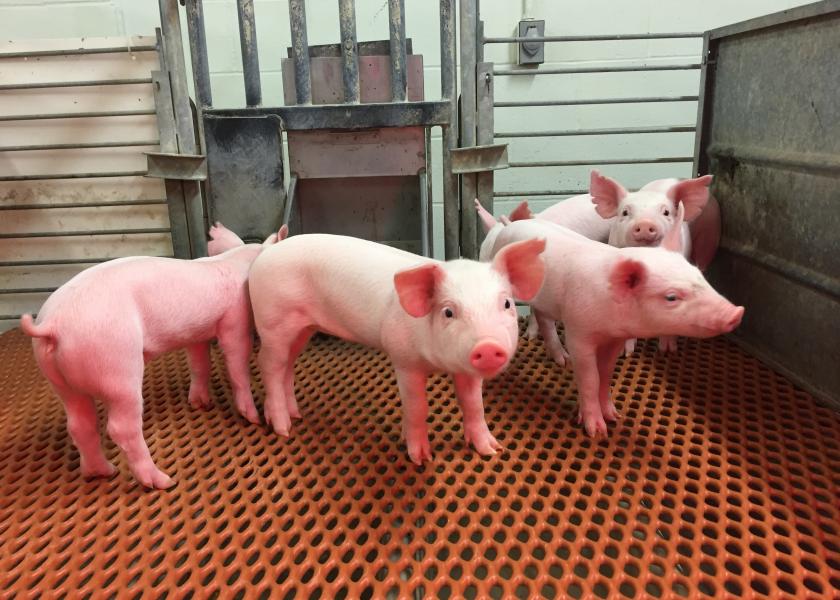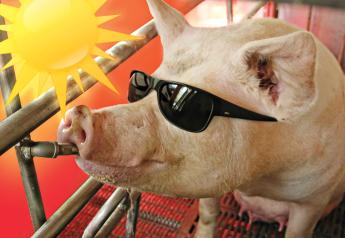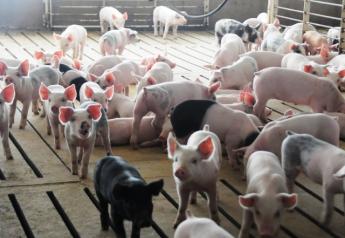Ag Needs White House Support on Gene-Edited Livestock Oversight

By Dan Kovich, NPPC director of science and technology
The COVID-19 worldwide pandemic has affected every aspect of our lives, including U.S. agriculture. While the U.S. government continues work to help farmers weather this unprecedented crisis, there is an immediate step the White House can take to help American agriculture maintain its global leadership status for years to come: ensuring the U.S. Department of Agriculture (USDA) has regulatory oversight over gene-edited livestock.
For more than a year, USDA and the U.S. Food and Drug Administration (FDA) have been in a regulatory tug of war over which agency has authority over genetic editing in livestock. Unfortunately, U.S. farmers are caught in the middle, allowing China, Brazil, Canada and other global competitors to move ahead in the race to utilize this new technology.
Gene editing is used to make specific changes within an animal’s own genome. Unlike genetically modified organisms, or GMOs, there would be no incorporation of genes from other species. Gene editing will allow us to produce animals that are more resistant to disease, require less antibiotics and have a better environmental footprint. It will also potentially allow us to produce animal products that are safer or do not contain allergens.
While the U.S. is making great strides in this effort, regulatory overreach by the FDA is hampering progress. Despite no statutory requirement, the FDA currently claims regulatory authority over gene editing in food-producing animals. FDA oversight will treat any gene-edited animal as a living animal drug – and potentially every farm raising them a drug manufacturing facility. Under FDA regulation, gene editing faces an impractical, lengthy and expensive approval process, threatening the resiliency of U.S. agriculture.
The primary authority for regulating all agricultural applications of new genetic technologies should be under the USDA. The agency already has a review process in place for genetic editing in plants under its Animal and Plant Health Inspection Service (APHIS), which can easily be adopted for livestock. Additionally, under USDA, gene-editing for livestock would be well protected under the existing Animal Health Protection Act. When it comes to agriculture, the USDA has a proven track record in advancing innovative genetic technologies in plants. The FDA cannot say the same thing about animals.
U.S. hog farmers operate a highly competitive, innovative and efficient pork production system that is the envy of the world. If the FDA emerges victorious in its regulatory overreach, pork producers and American farmers will lose the ability to compete, as their counterparts abroad gain a tremendous competitive advantage. Breeding healthier livestock utilizing gene editing has the potential to result in a more sustainable food supply, a healthier U.S. population and less food-borne illness. The U.S. pioneered these technologies and we are in real danger of handing them off to our global competitors.
We need the White House to act immediately to help U.S. farmers maintain their global leadership by ensuring USDA has regulatory oversight over this promising new technology. U.S. pork producers generate more than a trillion dollars every year, create more than 550,000 jobs, and represent almost 6% of the country’s GDP. Our lead in agriculture will only be maintained by driving these vital technologies forward – not putting the FDA in a position to slow them down.
Read More from Farm Journal's PORK:
Virus-Resistant Pigs Provide Answers to Global Threats
Gene Editing Development Stalled; NPPC Renews Call for USDA Oversight
Gene Editing Promise Stalled at FDA
NPPC Campaign Broadens Awareness of Gene Editing’s Promise
FDA Pushes Back Over Gene Editing Concerns from Pork Industry
Coming to a screen near you Aug. 25-27 – the Farm Journal Field Days! | Register at FarmJournalFieldDays.com







